10 Types of Classic Cocktails You Should Definitely Know How to Make
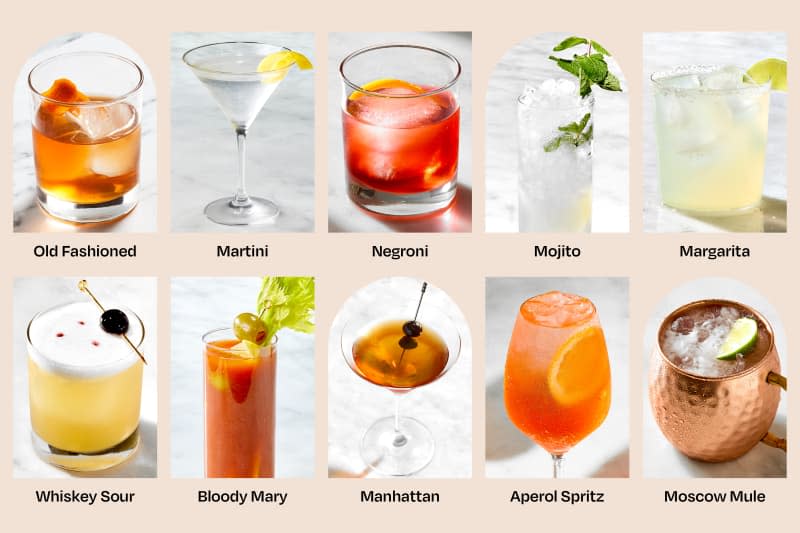
Choosing a cocktail can be an overwhelming proposition. There are a huge amount of cocktails out there, and it can be tough to know what is what. My pro move when faced with a daunting list of specialty cocktails is to go with a classic, and I often do the same thing if I’m pouring a cocktail at home.
Whether you’re looking to create a cocktail-ready bar in your home, or order like an expert at your favorite bar, we’ve got you covered. We’ve put together a list of essential classic cocktails, including their ingredients, popular variations, and types of glassware they’re typically poured into so you never have to say “Wait, what’s in that?” again.
Table of Contents
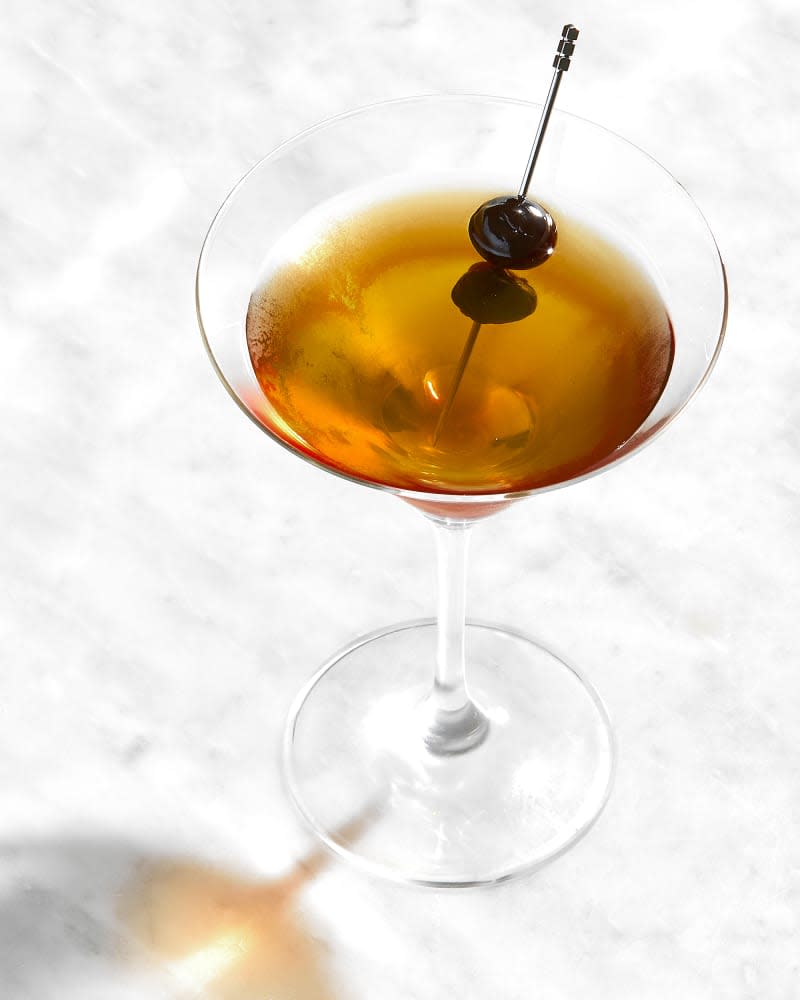
Manhattan
The Manhattan is an iconic cocktail originally conceived in the late 1800s somewhere in Manhattan (some say the Manhattan Club, but we can’t be sure). It’s traditionally made with rye, although there are many, many variations on this three-ingredient classic. You can swap out the rye for bourbon or scotch (a Rob Roy), the vermouth for amaro, or change up the bitters for a different flavor profile.
Ingredients: Rye whiskey, sweet vermouth, angostura bitters
Garnish: Maraschino cherry
Glass: Rocks glass or a cocktail glass
Shaken or stirred: Stirred
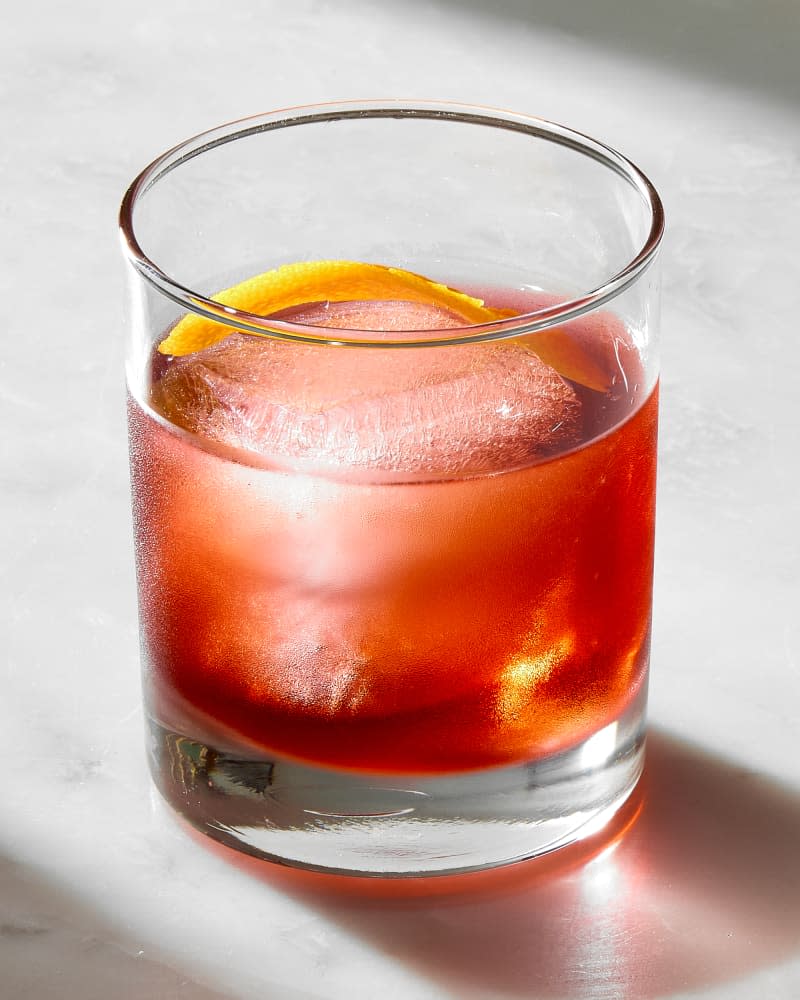
Negroni
This cocktail is rumored to be a riff on another classic, the Americano, which is made with Campari, sweet vermouth, and seltzer. The story goes that sometime in the early 1900s in Florence, Italy, Count Camillo Negroni ordered an Americano with gin instead of seltzer, and the Negroni was born. Variations of this popular cocktail abound, from replacing the gin with mezcal to the viral Negroni sbagliato, which also swaps out the gin for sparkling wine.
Ingredients: Campari, gin, sweet vermouth
Garnish: Orange peel
Glass: Rocks glass
Shaken or stirred: Stirred
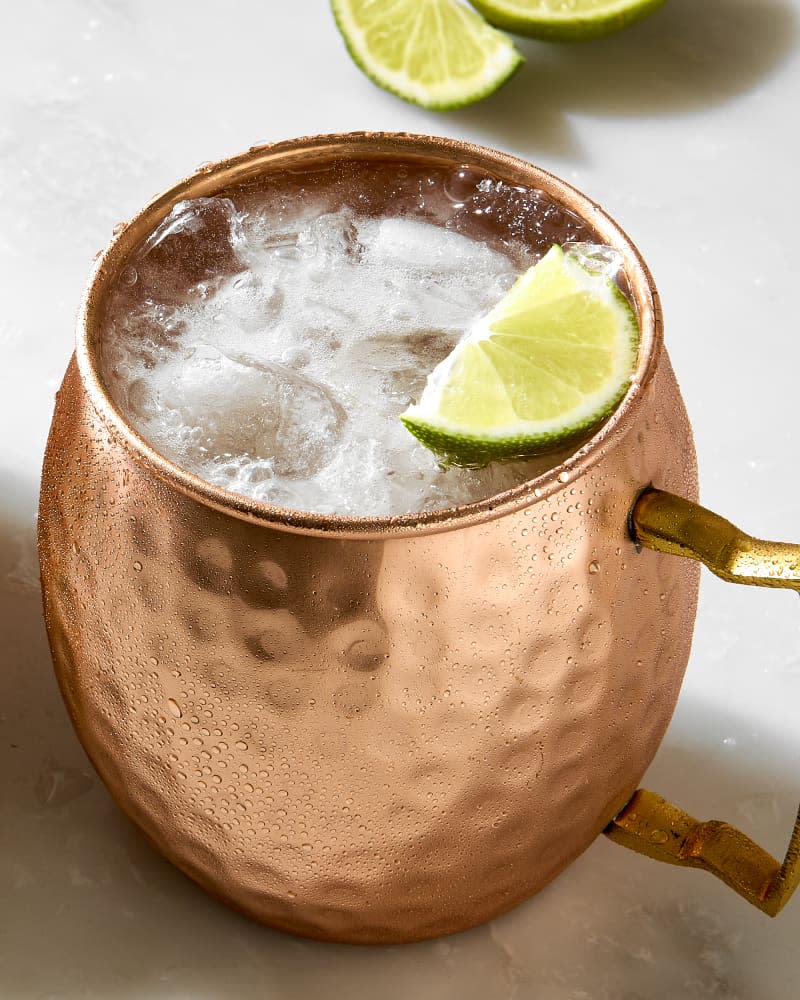
Moscow Mule
Despite its name, the Moscow Mule did not originate in Russia (nor does it have anything to do with mules). In 1941, the Los Angeles bar Cock ‘n’ Bull found themselves with an overabundance of their house-made ginger beer. The owner’s friend happened to have just purchased the Smirnoff distillery, leaving him with a surplus of vodka that he was also trying to push out. One of the bartenders at Cock ‘n’ Bull created the cocktail to help clear out both. Variations on the original include swapping out the vodka for bourbon (a Kentucky Mule), gin (the Gin-Gin Mule), and dark rum (the Dark & Stormy).
Ingredients: Vodka, ginger beer, lime
Garnish: Lime wedge
Glass: Copper mug
Shaken or stirred: Stirred
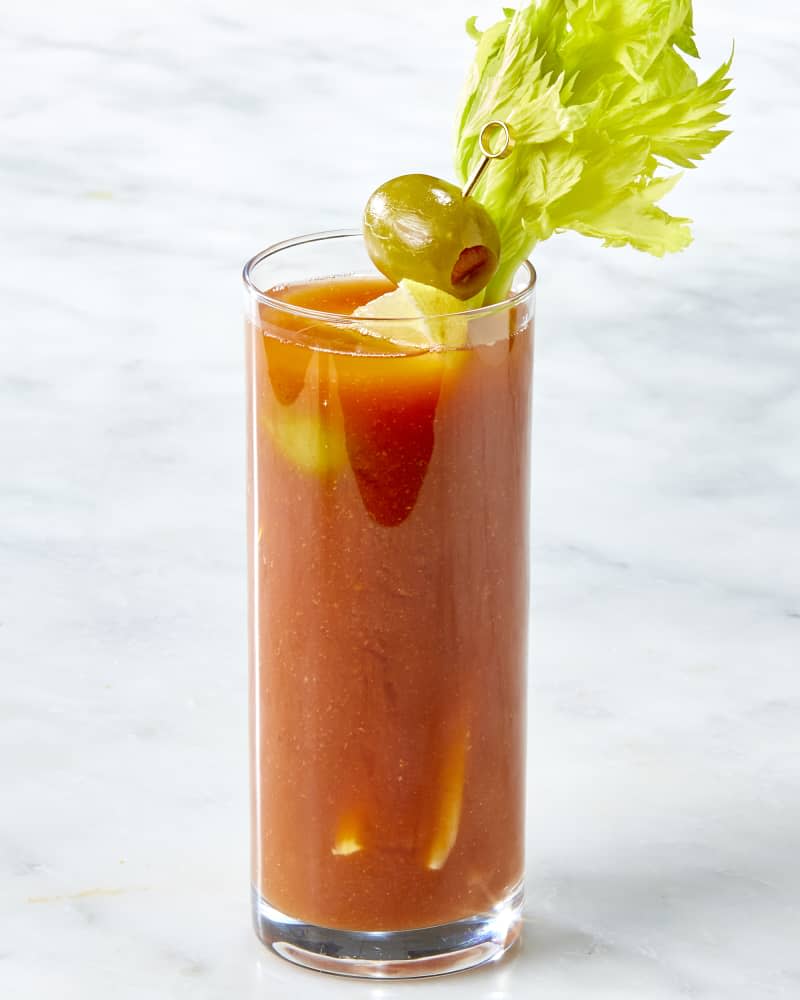
Bloody Mary
Tied with the mimosa for “cocktail most acceptable to drink before noon,” the Bloody Mary is a brunch MVP. This savory cocktail has more than a few ingredients, and the variations are endless. Everyone has a favorite Bloody, with the variables up for debate including everything from the base (tomato juice, Clamato, V8) to whether to include horseradish, Worcestershire sauce, and hot sauce (and how much). You can swap the traditional vodka for tequila to make a Bloody Maria, or gin for a Red Snapper, among countless other riffs on this classic.
Ingredients: Tomato juice, Worcestershire sauce, horseradish, hot sauce, lemon juice, black pepper
Garnish: Celery is traditional, but you can add anything from stuffed olives, to pickled vegetables, to a slice of bacon
Glass: Collins glass or pint glass
Shaken or stirred: Stirred
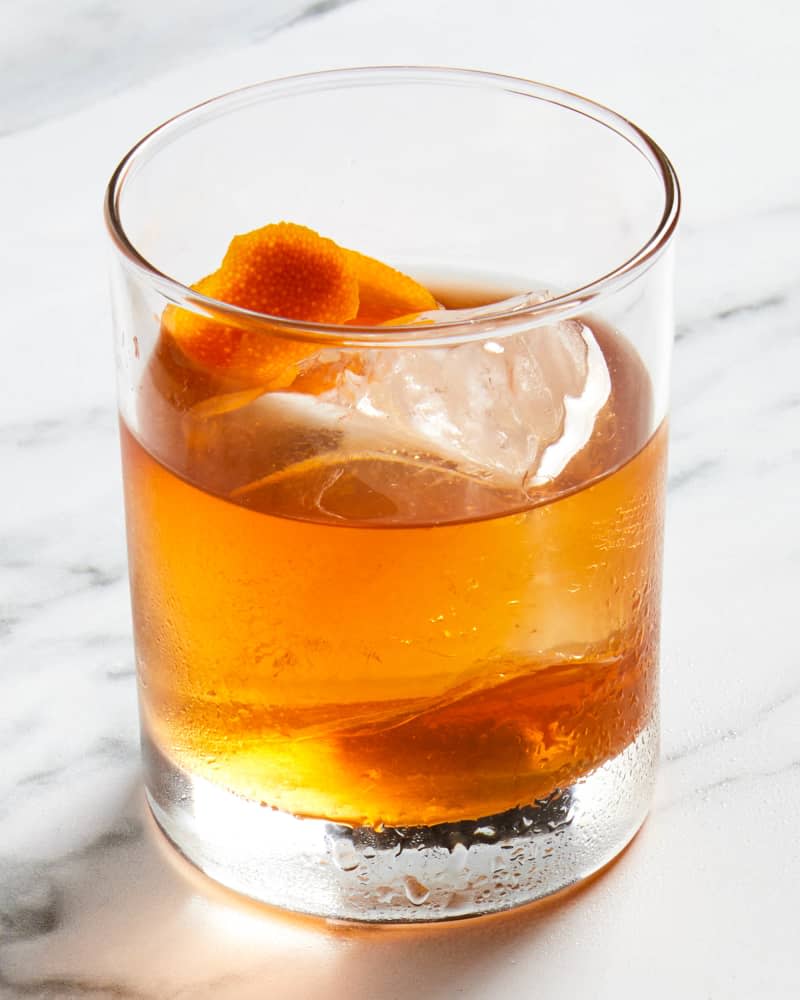
Old-Fashioned
The Old-Fashioned is a simple cocktail with a long history. Back in the mid- to late-1800s, a “whiskey cocktail” was a mixture of whiskey, sugar, bitters, and ice or water. Once newer liqueurs started appearing in bars from Europe, cocktails began incorporating new flavors, which led to some patrons ordering a whiskey cocktail “the old-fashioned way.” Despite the best efforts of the bar patrons of yore, there are many ways to experiment with the simple flavors of the Old-Fashioned, from trading the bourbon whiskey for different liquors to adding different flavor profiles via infused simple syrups.
Ingredients: Bourbon, simple syrup (or a sugar cube), Angostura bitters
Garnish: Orange peel
Glass: Rocks glass
Shaken or stirred: Stirred
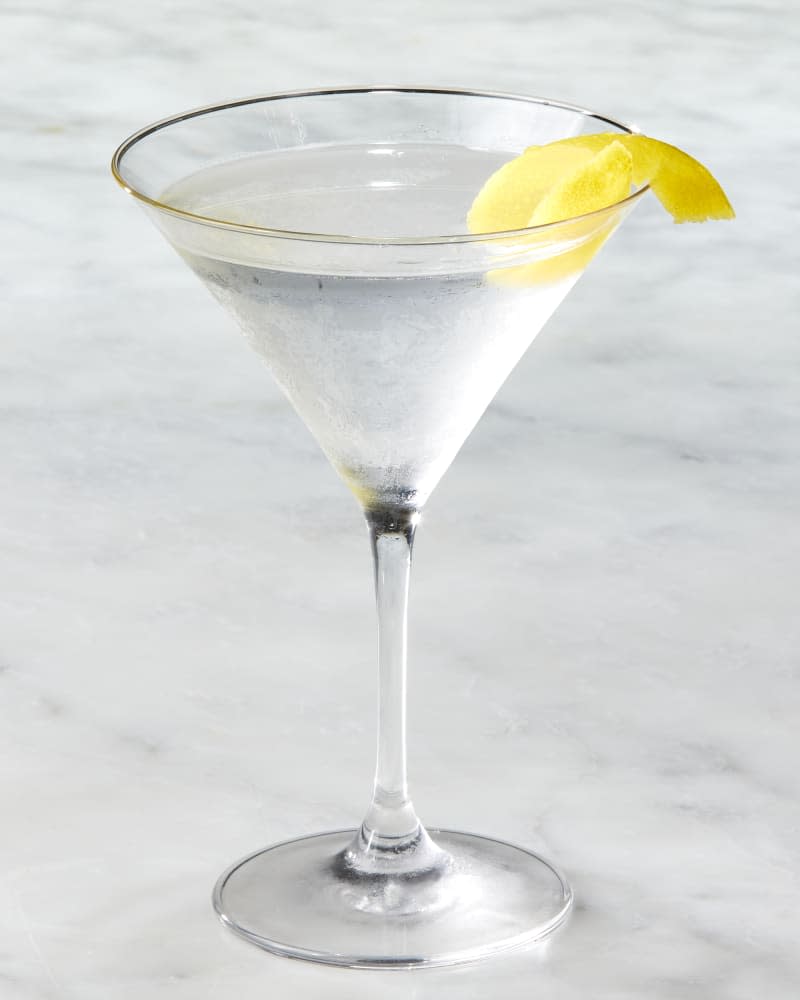
Martini
The classic martini is arguably the most quintessential of cocktails. The simple combination of gin, vermouth, and olives has spawned a surprising amount of variation. The ratios of liquor to vermouth can change from recipe to recipe as well as the inclusion of olive brine (making a dirty martini). However, the variables don’t stop there. Swap the olive for a cocktail onion to make a Gibson, or the gin for vodka for a vodka martini, and that’s without even getting into cocktails that retain the name “martini,” but stray further from the core recipe, like the lemon drop martini, or the ever-popular espresso martini.
Ingredients: Gin, dry vermouth
Garnish: Olives, although you can get fancy and go with an olive stuffed with anything from blue cheese, to lemon, to anchovies, to garlic
Glass: Martini glass
Shaken or stirred: Stirred, although James Bond might disagree
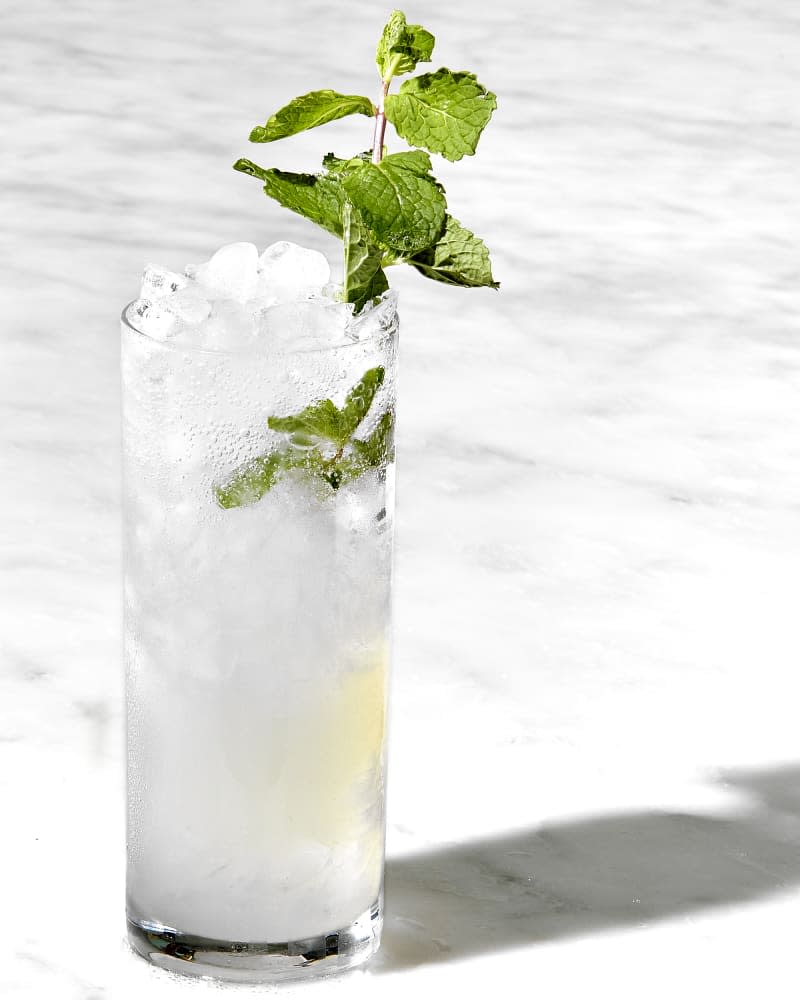
Mojito
Origin stories for the mojito are peppered with famous names. One story claims it was invented during the invasion of Cuba in 1586 by Sir Francis Drake, while another claims it was born in Havana at one of Ernest Hemingway’s favorite bars. However it was conceived, this combination of fresh, citrusy flavors and rum remains a staple for beating summer heat. Variations include the addition of fruits like watermelon, coconut, or even some blackberries and switching the white rum with other liquors like tequila or vodka.
Ingredients: White rum, fresh mint, lime juice, simple syrup, club soda
Garnish: Fresh mint leaves, lime wedges
Glass: Collins glass or pint glass
Shaken or stirred: Shaken
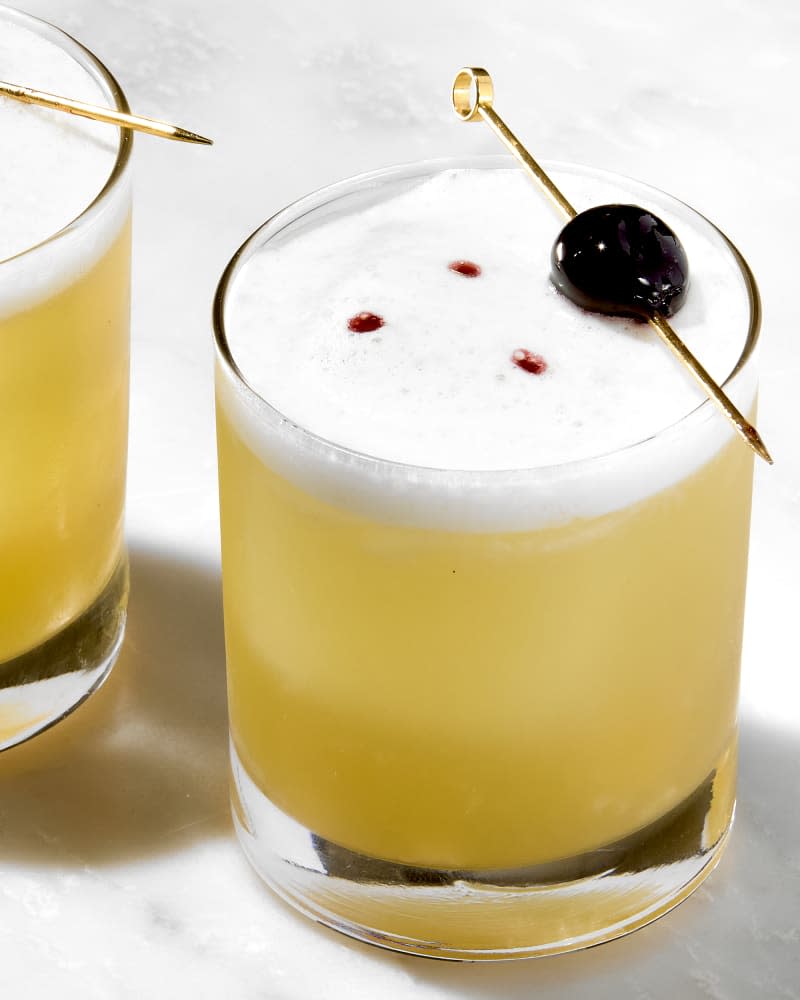
Whiskey Sour
The whiskey sour is a cocktail that works in any season. The light flavor of lemon juice lifts the whiskey just enough for it to straddle the line between cold and warm weather. The addition of an egg white to this three-ingredient cocktail is traditional, but it’s up to you to choose your own adventure. The egg white adds a layer of foam and a richer texture to the drink, but is certainly not mandatory. If egg whites aren’t your thing, you might opt for an Amaretto Sour (Amaretto swapped for the whiskey) or a New York Sour, which adds a red wine float to the top.
Ingredients: Rye whiskey, simple syrup, lemon juice, egg white (optional)
Garnish: Maraschino cherry
Glass: Cocktail glass
Shaken or stirred: Shaken
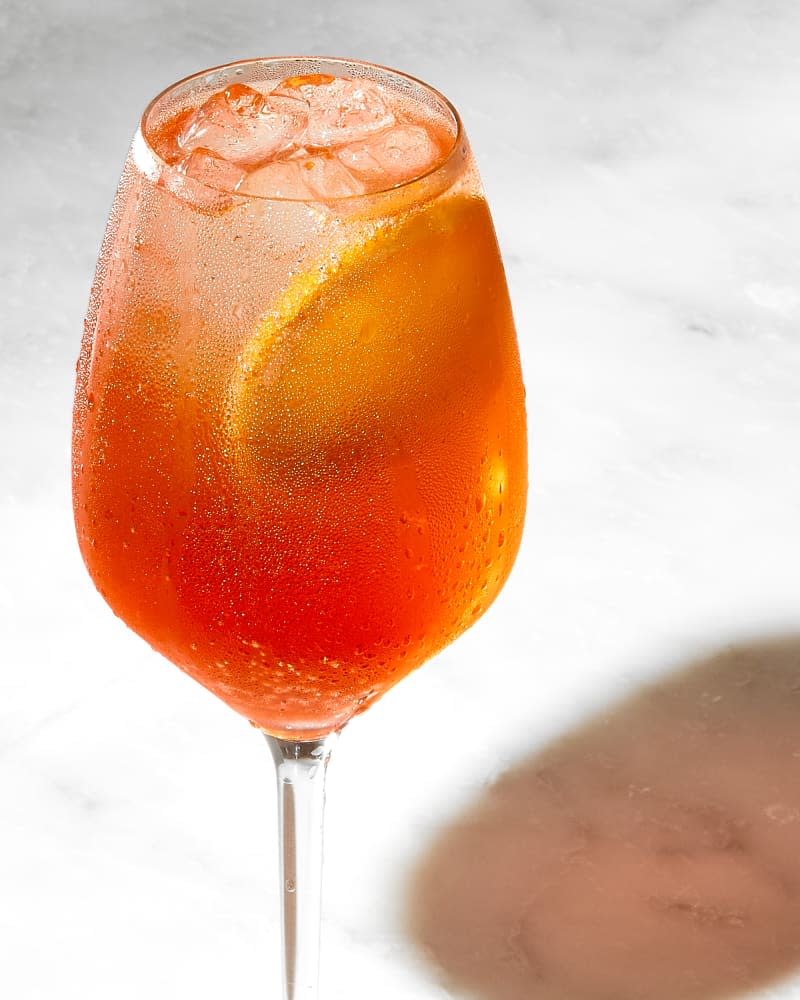
Aperol Spritz
An Aperol spritz is like summer in a glass. It’s light and fizzy and fun, and just as appetizing at brunch as it is on vacation. This low-alcohol cocktail is actually an Italian aperitivo — a pre-dinner cocktail. Aperol itself is an Italian liqueur made with oranges that has a flavor that is both bitter and sweet. Twists on the classic include swapping the Aperol for other bitter liqueurs or amaros like Cynar or Campari.
Ingredients: Aperol, dry sparkling wine (like cava or prosecco), seltzer
Garnish: A slice of orange or lemon
Glass: Wine glass
Shaken or stirred: Stirred
Margarita
An undisputed classic, the margarita is a cocktail that can be very simple or a bit more complicated, depending on who’s making it. The combination of tequila, lime juice, and some kind of sweetener can be riffed on endlessly. Some recipes call for orange liqueur, some for simple syrup, while others call for neither, opting instead for agave nectar. There are seemingly endless variations that swap in alternate fruits, or add spice, and of course there’s always the ubiquitous frozen margarita.
Ingredients: Tequila, lime juice, simple syrup or orange liqueur
Garnish: Lime wedges, kosher salt rim (optional)
Glass: Margarita glass or pint glass
Shaken or stirred: Shaken
